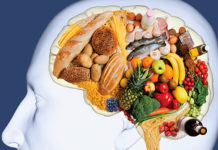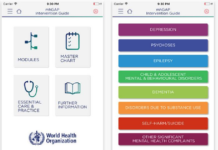How Western Psychiatry Harms Alternative Understandings of Mental Health
An anthropological look at the Global Mental Health (GMH) movement suggests several ethical problems and contradictions in its mission.
Does Facebook Use Improve Social Connections or Weaken Attention?
A network analysis of participants’ social media use and well-being reveals complex links with social capital but a minimal association with attentional control.
How Pain is Treated Depends on Socioeconomic Status
A new international study reveals how healthcare providers treat patient’s pain may depend on that patient’s socioeconomic status.
Researchers Set the Record Straight on Controversial Zoloft Study
An issue of Lancet Psychiatry is devoted to clarifying the lack of efficacy for Zoloft (sertraline).
Medical Ghostwriting: When an “Author” Is Not Necessarily an “Author”
Ghostwriting, which is prominent in the psychiatry literature, is a scam in which pharmaceutical companies use an academic sleight of hand to stump the naïve reader. It is time for editors of the major medical journals to use the same standards of authorship found in the humanities and social sciences.
What is the Evidence for Empirically Supported Treatments in Psychology?
New meta-scientific review questions the evidence for the gold standard psychotherapies and empirically supported treatments.
Growing Research Connects Nutrition and Mental Health
A new article reviews studies in the field of nutritional psychiatry and how nutrition can prevent and treat mental health issues.
Ketamine for Harmful Drinking: A Look at the Data
New research contends that ketamine can reduce problematic alcohol use but does the data support the claims?
Blaming Climate Change Inaction on Psychological Barriers Misses the Point
Researchers argue that blaming climate change inaction on psychological barriers ignores the effects of neoliberal capitalism and social structures.
Why is the Field of Psychotherapy Still Fractured into Different Approaches?
Psychotherapy is dominated by contradicting schools of thought, exhibits a gap between research and practice, and repackages old ideas rather than finding clinical consensus.
Pervasive Industry Influence in Healthcare Sector Harms Patients
Experts across the globe point to the harms of drug companies’ influence on research, practice, and education in healthcare noting that it compromises patient care.
Researchers Critique WHO Mental Health Technology
Researchers critically examine the underlying assumptions and implications of a new WHO mental health technology designed to streamline psychiatric assessment internationally.
Young Adult Food Insecurity Linked to Poor Mental Health
A new study identifies significant links between food insecurity and sleep, anxiety, depression, and compromised wellbeing among young people in the United States
Statisticians: Current Policies Approve Ineffective Treatments
Current standards for clinical trials rely on statistical methods that allow for ineffective treatments to gain approval.
Measuring How Mental Health Professionals See Service Users’ Rights
A new scale has been developed and validated to examine beliefs held by mental health professionals towards service users’ rights.
Experts Raise Ethical Concerns About Machine Learning in Medicine
The use of machine learning algorithms (known as artificial intelligence) in the medical field raises a slew of ethical concerns.
How Antidepressants Shape Young Women’s Sense of Self
Young women’s narratives indicate ways antidepressants have shaped their sense of self.
D-Cycloserine Supplement Does Not Add Much to Exposure Therapy
A closer look at a new study reporting that the supplement D-cycloserine improved anxiety when used with exposure therapy.
Involuntary Hospitalization More Likely With Psychosis Diagnoses and Few Resources
New study links involuntary hospitalization with psychotic diagnosis, previous involuntary hospitalization, and economic deprivation.
Rates of Opioid Use Remain High Among US Adolescents
Researchers investigate trends in opioid use, prescriptions, misuse, and access reported by adolescents and young adults.
How Race and Class Impact Schizophrenia and Substance-Use Diagnoses
A new article explores how psychiatric diagnoses are differentially applied to people of different racial and class backgrounds.
Dissecting the DSM Debate: Researchers Analyze Critiques Across Audiences
A new study systematically explores critical reactions to the DSM-5 and identifies unifying themes.
Despite Claims, EPA Supplement Does Not Improve ADHD Symptoms in Youth
A new study reports that the supplement EPA improved ADHD symptoms but a closer look calls these results into question.
Parachute NYC Peer Support Program Presents Challenges and Opportunities
Anthropologists study Parachute NYC to identify challenges and opportunities for implementing peer support and Open Dialogue practices.
New CDC Data Underscores Need to Address Adverse Childhood Experiences
New prevention strategies are needed based on our increasing understanding of the impacts of Adverse Childhood Experiences (ACEs).

































